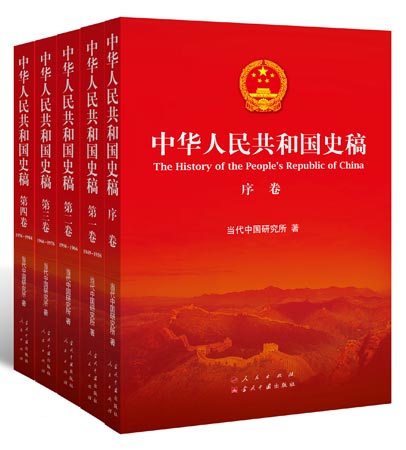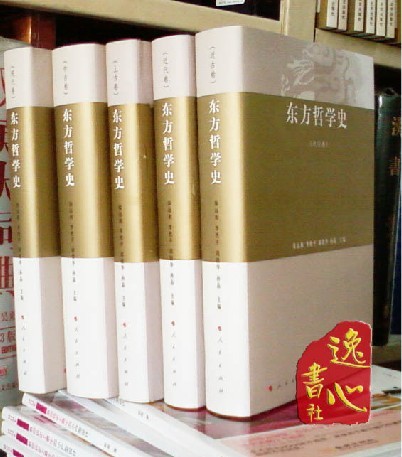CASS honors 16 Innovation Project research

On December 20-27, the Chinese Academy of Social Sciences (CASS) held the fourth “Research Achievements Release Conference of Philosophy and Social Sciences Innovation Project (hereafter Innovation Project)”. 16 research achievements of the Innovation Project were exhibited at the conference, covering the disciplines of Marxism, economics, law, history, archeology, literature, philosophy, sociology, international studies, and urban development and environment studies. As a leading think tank in China, CASS has made remarkable achievements since the initiation of “Innovation Project” in 2011. For the past two years, it has published around 700 academic books, 9,000 papers, 3,000 research reports, as well as nearly 1,000 academic resources, collated ancient books and textbooks. Some of these excellent works have been influential in academic circles and other fields well beyond China’s boundaries, including the recently exhibited 16 research achievements. CASS Vice Presidents Li Yang and Li Peilin and CASS Secretary-General Gao Xiang presided over the conference. Affordable books provide more access to Marxism Among the 16 research achievements, Research on Several Vital Issues of Marxism and the 22-volume Think of Adversity in times of Prosperity: World Socialism Series are two of the major academic contributions on Marxism that CASS has made. Research on Several Vital Issues of Marxism illustrates and studies the features, content, and principles of Marxism and addresses its historical conditions and global status in contemporary times. “The work is distinctive in its broad global vision and profound historical consciousness,” commented Hao Lixin, dean of the School of Marxism Studies at Renmin University. “The authors are acutely aware of pressing research problems, draw close connections between domestic and international realities, display ingenuity in outlining vital theories and social problems, and proactive respond to challenges posed to Marxism by the real world.” Think of Adversity in times of Prosperity: World Socialism Series has been hailed as a series which manages to step down from the ivory tower and speak to the common reader, sticking to the principle “great scholars, thin books”. Written by CASS Members and prominent scholars in the field of world socialism from universities and research institutes, these volumes have transformed tedious scholarship into short, readable collections, with each collection only tens of thousands of words. These articles value the blending of rigorous theory and popular scholarship, introducing to the public important theories and social problems in readable, lively and brisk language. To make it affordable and available to a broad audience, this series of “thin-but-excellent” books are priced at 10 yuan per collection. Since its publication, the editors have received many complimentary letters from readers. One rural doctor from Shandong province of China wrote: “It is great fun to read the series. Full of substance and plot, it never strays far from reality and general readers like me. While I was reading the book that narrates Chairman Mao, tears were streaming down my face.” Masterpieces coalesce generations’ efforts CASS’s historical mission is to produce academic classics. Among the honored 16 projects, the fields of literature, history and philosophy are particularly well represented. The most quickly compiled of these hefty works took 10 years to complete, while the longest took 40 years. The 5-volume The History of the People’s Republic of China compiled by CASS’s Institute of Contemporary China Studies is the product of two decades’ efforts and several generations’ diligence and wisdom. “The book does an excellent job of reflecting the primary issues and central events throughout the history of the People’s Republic of China (PRC). It assesses the twists and turns that PRC has undergone in a down-to-earth, fair-and-square way. In particular, its commentary on the merits and shortcomings of Mao Zedong has safeguarded the historical role of Mao Zedong Thought in an objective way,” said Liang Zhu, former vice president of Peking University. Among them, the 36-volume History of the Republic of China took the longest to compile--, taking longer than the time span covered by the series. First included in the “1956~1967 National Scientific and Technological Long-term Plan” in 1956, classified into the Nation Publishing Plan in 1971 under the instruction of Premier Zhou Enlai, and finally published in 2011, it is the crystallization of several generations’ strenuous efforts. Zhang Baijia, the former vice director of the Party History Research Center of the CPC Central Committee, expressed that the History of the Republic of China is a work of paramount importance, standing as the cornerstone of its field and bringing together that thought of many masterminds. It is worth mentioning that the 40 years during which the History of the Republic of China was complied was also the period when the discipline of historical science on the Republic of China burgeoned and matured. “The completion of a book on dynastic history has helped set up a new research division and cultivated generations of researchers talent, bringing us to an unprecedented place in terms of the strength of the field of historical science since the founding of the PRC,” said Li Xuetong, a researcher from Institute of Modern History at CASS. Throughout the long course of the series’ difficult compilation, the research teams of some works even had to witness the deaths. The Historical Atlas of the People's Republic of China (the first volume) was published after 30 years of compilation, during which six academic masters who served either as chairmen or vice-chairmen of the editorial board passed away as well as half of the 20 total members of the editorial board. On his deathbed, Tan Qixiang, the editor-in-chief of the series and an academician of Chinese Academy of Sciences (CAS), was still worried about the compilation of the book. “He was too sick to speak at that moment. When I told him that we would go on with the work and do our best to make it perfect, a smile of satisfaction radiated his face,” Ge Jianxiong, a professor from Fudan University, a member of the editorial board recalled affectionately. After Tan passed away, the post of editor-in-chief was removed. During the compilation of The History of Eastern Philosophy, three team members also passed away. Compared with the “globally pioneering work” in the field of Eastern philosophy, this three-million-word masterpiece fills the vacuum in the field, laying the foundation for its global study. “This book helps us restore the ‘forgotten Orient’, which is beneficial for us to reflect on Eurocentrism and examine the dual philosophical thinking patterns of both East and West,” expressed Peng Yongjie, a professor from Renmin University of China. History of the Shang Dynasty also fills in the academic gaps. Comprising eleven volumes and nearly seven million words, the book “occupies a spot long empty in works on Chinese ancient history and has radically altered the backward status of the works on the dynastic history in Shang Dynasty,” commented Li Boqian. A History of Chinese Literature is a new 12-volume work based on A General History of the Chinese Literature published in 1997. Experts and reviewers have lauded the work for truly upholding its designation as a “general” history, a trait that previous works of Chinese literary history have seldom succeeded in accomplishing. The existing overviews of the subject tend to overemphasize narrative, temporal, ethnic, and stylistic perspectives, the experts indicated. An outline of Chinese history and Concise History of China, are popular history works targeted at readers of different social status and have helped to change the average readers’ conception of works on general history of China as being incomprehensible to the layperson. The Significance of Ruins and Tomes Excavated in Adunqiaolu, Wenquan County from the Early Bronze Age, though not a masterwork, plays a significant role in the study of Bronze Age culture in the Eurasian Steppes. Academic works advise for China’s transformation In recent years, CASS has made increasing contribution in advising the decision-making of the Party and state and exercised its voice on issues of national economic and social development, fulfilling its role as a national think tank. China is now at the critical juncture of transformative development. Commentators warn of the approaching Lewisian Turning-Point and the vanishing of demographic dividend which threaten to hold China in the middle income trap. Beyond Demographic Dividend gives a lucid answer to how China should cope with these issues. China National Human Development Report 2013—Sustainable and Liveable Cites: Toward Ecological Civilization addresses how China can achieve sustainable urbanization, another major challenge it faces in this period of transformation. In order to investigate the social changes during the transformation and evaluate the current reality and future hopes of China’s citizens, the research team for Reports on Contemporary China: Social Harmony and Stability in Contemporary China recorded the view of 7,000 ordinary people on the realization of Chinese Dream. The work Several Major Issues Concerning Comprehensively Deepening Reforms addresses reform of the financial system, adjustment of the fertility policy, promoting the establishment of the rule of law, the elevation of China’s national image elevation, and improving the food security system. Focusing primarily on the international financial crisis, International Financial System: Reform and Reconstruction analyzes its evolution, problems and trends, and illustrates the policy options for China. The working out and risk evaluation of the National Balance Sheet is an important contribution CASS has made to evaluate and resolve China’s national debt problems. It was initially formulated in 2012 and updated in 2013. CASS has indicated that it plans to release the research achievements of the Innovation Project at the end of each year or beginning of the next year at regular intervals, with 10-20 items released each time. The Chinese version appeared in the Chinese Social Sciences Today, No. 543, December 30, 2013 Chinese link: http://www.csstoday.net/xueshuzixun/guoneixinwen/86951.html
Translated by Bai Le
Revised by Charles Horne
